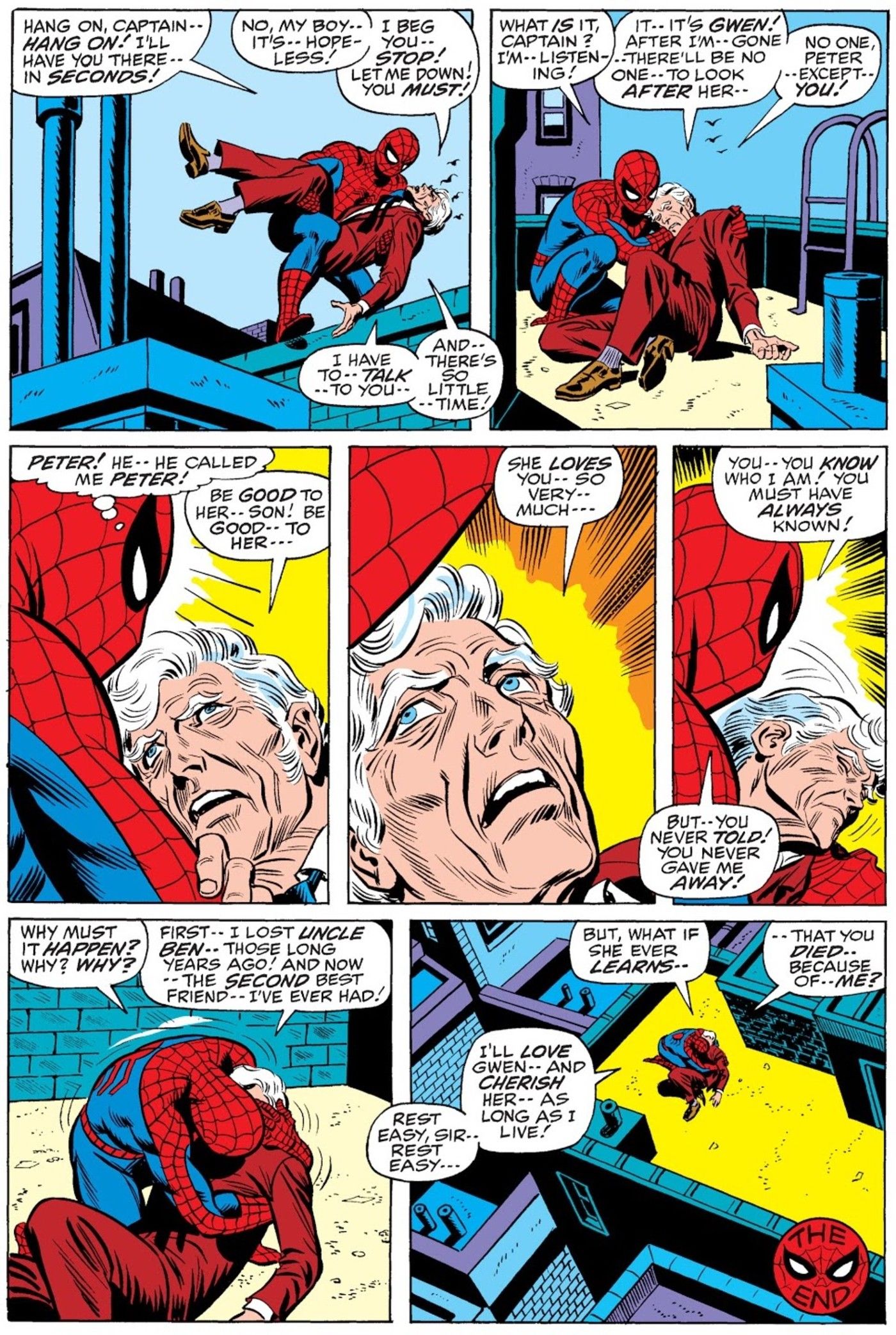

The Amazing Spider-Man's single worst moment was the exact opposite of a classic Spider-Man storyline in the comics, and this massive failure by the writers doomed the franchise. The 2012 film directed by Marc Webb retold Peter Parker's origin story but notably replaced Mary Jane with Gwen Stacy - Peter's first girlfriend in the comics - and created a different dynamic between hero and love interest. In Amazing Spider-Man #90, that dynamic is put to the test in a pivotal moment - but in the films, the moment is changed drastically, and for the worse.
Leading up to Amazing Spider-Man #90, Peter Parker's life is quite tumultuous: his Aunt May is routinely ill, and his relationship with Gwen Stacy is strained whenever he misses dates in order to save others as Spider-Man. Police captain George Stacy is overprotective of his daughter Gwen but ultimately approves of Peter as her boyfriend, albeit with some reluctance. All this comes to a head when, in a battle between Spider-Man and Doctor Octopus, Captain Stacy attempts to save an innocent bystander and is subsequently mortally wounded.
Spider-Man deals with Doctor Octopus and quickly scoops up Captain Stacy and begins to swing him to a hospital, but George begs him to put him down on a nearby building - he has to talk about Gwen. "After I'm gone, they'll be no one to look after her - no one, Peter, except you!" Peter is shocked that Captain Stacy has figured out his true identity - something no other friend or foe has managed to accomplish. Captain Stacy only manages to live a little while longer before expiring on the roof of the building in Spider-Man's arms. Peter realizes that Stacy must have known his identity for a very long time - and never told anyone.

This is a turning point for Spider-Man comics; a major supporting character dies and - similar to Spider-Man's origin story and Uncle Ben - Peter blames himself. Furthermore, Gwen despises Spider-Man from this moment until her death, believing the wall-crawler killed her father. But in The Amazing Spider-Man film, Captain Stacy's dying words are reversed: "People will get hurt - sometimes the people closest to you. So I want you to promise me something, okay? Leave Gwen out of it." Peter and Gwen tearfully break up a few scenes later, Gwen realizing that her father made Peter honor his last words. Yet in the very next scene, in response to a teacher chastising Peter's assertions that he won't be late again with "Don't make promises you can't keep, Mr. Parker", Peter leans over to Gwen and whispers with a smirk, "But those are the best kind."
It is frankly astounding how radically these small changes alter the character of Peter in the film. Peter in the comics is racked with guilt over Captain Stacy's death, not to mention the notion that Gwen now despises his alter-ego, whereas Peter in the film appears to ignore Captain Stacy's last words altogether and isn't motivated by guilt at all. This change also completely ignores Gwen's feelings in the equation: does she not have a say in her own future? Is it to be determined solely by Spider-Man and her late father? By removing Gwen's agency and making Peter out to be selfish, the ending of The Amazing Spider-Man goes against a poignant moment in the comics, second only to Gwen Stacy's death. All adaptations require changes, but perhaps nothing so radical as changing the ending of one of the most important Spider-Man comics of the Silver Age.
https://ift.tt/3x279U3
No hay comentarios:
Publicar un comentario